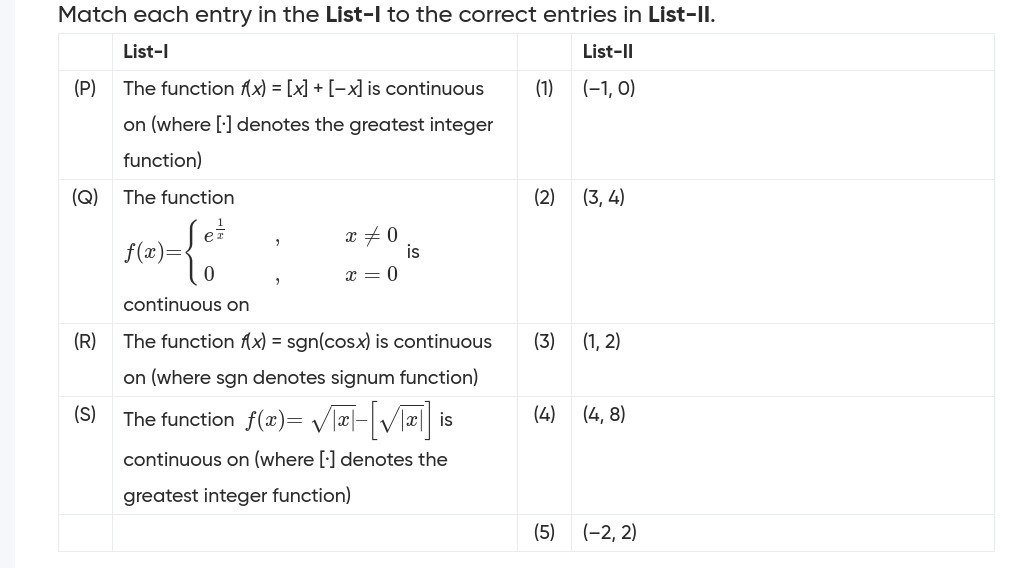Question
Question: The function f(x) = [x] + [-x] is continuous on (where [.] denotes the greatest integer function)...
The function f(x) = [x] + [-x] is continuous on (where [.] denotes the greatest integer function)

A
R
B
Z
C
R∖Z
D
(0,1)
Answer
R∖Z
Explanation
Solution
For any integer x=n, f(n)=[n]+[−n]=n+(−n)=0. For any non-integer x, let x=n+α where n∈Z and 0<α<1. Then f(x)=[n+α]+[−n−α]=n+(−n−1)=−1. Thus, f(x)=0 if x∈Z and f(x)=−1 if x∈/Z. At integer points x=n, the left-hand limit is -1 and the right-hand limit is -1, but f(n)=0, so it's discontinuous. At non-integer points, the function is constantly -1, hence continuous.
